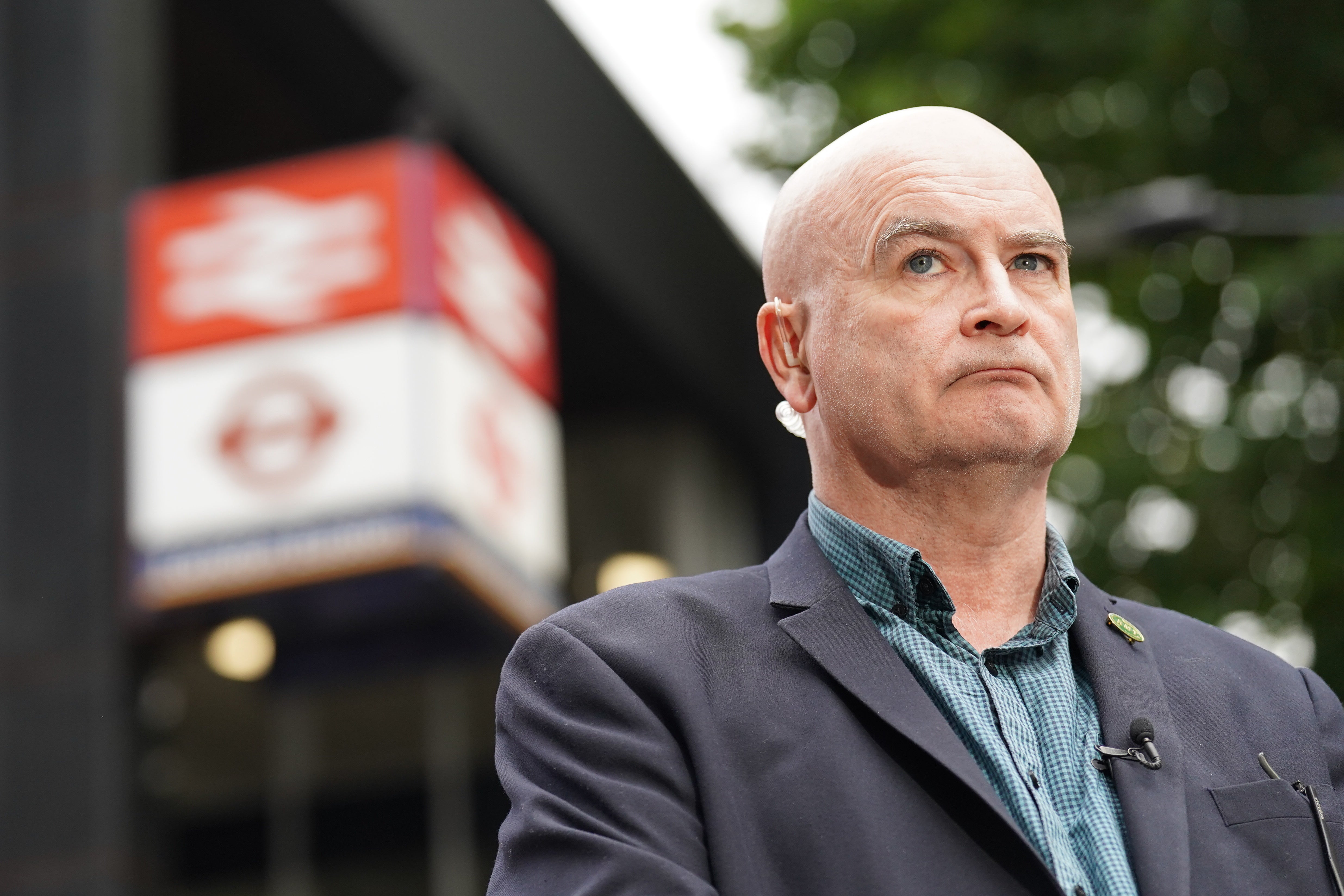Chancellor on collision course with unions over strikes
Kwasi Kwarteng told the Commons it is ‘unacceptable’ that strike action is causing so much disruption.

Your support helps us to tell the story
From reproductive rights to climate change to Big Tech, The Independent is on the ground when the story is developing. Whether it's investigating the financials of Elon Musk's pro-Trump PAC or producing our latest documentary, 'The A Word', which shines a light on the American women fighting for reproductive rights, we know how important it is to parse out the facts from the messaging.
At such a critical moment in US history, we need reporters on the ground. Your donation allows us to keep sending journalists to speak to both sides of the story.
The Independent is trusted by Americans across the entire political spectrum. And unlike many other quality news outlets, we choose not to lock Americans out of our reporting and analysis with paywalls. We believe quality journalism should be available to everyone, paid for by those who can afford it.
Your support makes all the difference.The Chancellor has put himself on a collision course with trade unions by announcing plans to legislate to require them to put pay offers from employers to a vote of members.
Amid a wave of industrial action by hundreds of thousands of workers, he told the Commons it is “unacceptable” that strike action is causing so much disruption.
Other European countries had minimum service levels to stop “militant trade unions” closing down transport systems, he said.
Kwasi Kwarteng told MPs the Government would do the same, “and go further”, adding: “We will legislate to require unions to put pay offers to a member vote to ensure strikes can only be called once negotiations have genuinely broken down.”
The Government should be working towards a negotiated settlement in the national rail dispute, not seeking to make it even harder to take effective strike action
Shortly after Mr Kwarteng made his comments, the Transport Salaried Staffs Association and Unite announced fresh strikes in a long-running rail dispute over jobs, pay and conditions.
All the major rail unions are now taking strike action on October 1, threatening a complete shutdown of the network for the first time since the row flared earlier in the year.
Responding to the Chancellor’s comments, Mick Lynch, general secretary of the Rail, Maritime and Transport (RMT) union, said: “We already have the most severe anti-democratic trade union laws in western Europe and this latest threat will rightly enrage our members.
“The Government should be working towards a negotiated settlement in the national rail dispute, not seeking to make it even harder to take effective strike action.
“RMT and other unions will not sit idly by or meekly accept any further obstacles on their members exercising the basic human right to withdraw their labour.”
Frankly, having to ballot our members on pay offers before they can take industrial action will not make a blind bit of difference
Manuel Cortes, general secretary of the TSSA, said: “Unions are democratic organisations and industrial action only occurs as a last resort and after a postal ballot of members which also includes having to meet undemocratic thresholds.
“Frankly, having to ballot our members on pay offers before they can take industrial action will not make a blind bit of difference.
“If the offer is rubbish, it will still be rubbish whether our elected workplace reps have consulted our members on it or a ballot has taken place.
“This new Tory proposal will serve only to elongate disputes and generate greater anger among union members. It will do precisely nothing to encourage employers to come to the negotiating table with realistic offers.”
Dr Patrick Roach, general secretary of the NASUWT teaching union said: “The Government has once again confirmed that they are hell-bent on trying to prevent workers from defending their jobs, pay and working conditions.
“We would expect no better from a Government that has had such disregard for their international commitments and obligations.
“With the deep recruitment and retention crisis facing our schools and colleges, the Government must take seriously the anger of teachers and headteachers rather than seeking to intimidate and bully experienced teachers out of the profession.”
Royal College of Nursing general secretary Pat Cullen said: “This sounds not only deeply undemocratic but also inaccurate when it comes to how NHS pay is decided – there are no negotiations, the Government imposes a pay announcement without warning.
“Health professionals already face draconian anti-trade union laws. Silencing health workers silences the patient voice too.”
Instead of making it harder for employees to secure decent wages, ministers should be talking to unions about ways to solve problems
Unison general secretary Christina McAnea said: “The Government must stop demonising unions and seeing them as the enemy. Strikes are a symptom of the cost-of-living crisis.
“Instead of making it harder for employees to secure decent wages, ministers should be talking to unions about ways to solve problems.
“Attempting to tie unions up in knots while pulling out all the stops for City elites just shows workers that the Government is not on their side.
“By threatening every employment right won through the membership of the EU, ministers are showing a blatant disregard for the health, safety and wellbeing of working people.”